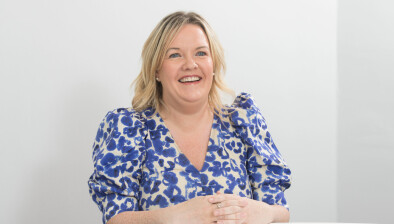Sharon McDougall: Battling a personal debt crisis during COVID-19

Sharon McDougall
Sharon McDougall, part of Begbies Traynor’s Scotland Debt Solutions Team, discusses how a personal debt crisis can be handled during the current COVID-19 pandemic.
The coronavirus pandemic has been a testing period for workers across the country as work reduces, income halts and employees are placed on furlough leave until trading conditions improve. As many enter 2021 without the knowledge of whether they will return to a job or be made redundant, the final pressures posed to individuals and businesses alike are unprecedented. If you are struggling from personal debt problems during COVID-19, the economic climate may have further worsened your financial position, deteriorating your finances. Failing to turn towards a personal debt solution could result in eliminating any chances of recovery, leaving you with no choice but to declare yourself as insolvent.
Scottish personal insolvency law differs to that across the rest of England, Wales and Northern Ireland, offering a series of personal insolvency solutions to help improve your financial condition. As household running costs increase following the instruction to work from home and self-isolate in the event of Covid-19 interaction, the impact of the coronavirus pandemic is likely to bite into your finances. If you are struggling to keep up with creditor repayments and maintain essential financial commitments, explore the personal debt solutions available to you in Scotland.
Sequestration
This is typically the last resort if you have run out of cash and you are, therefore, insolvent. Sequestration is essentially a Scottish bankruptcy procedure which allows you to write off a portion of your unsecured debts. You can enter this process voluntarily if you have debts over £1,500 or you can also be forced into Sequestration by a creditor owed £3,000. As a result of the coronavirus pandemic and following the Scottish Coronavirus Act, the limit has been raised to £10,000, to give you the best chance of resolving your finances. To enter Sequestration, you must live in Scotland and must not have been sequestrated over the last 5 years.
During the sequestration process, you will be appointed a Trustee who will be responsible for managing your financial affairs, a role which can be played by your insolvency practitioner. The Trustee will review your repayment ability, liaise with creditors and work towards providing relief from creditor demands.
If you are not insolvent and can generate funds to repay creditors, a Trust Deed or Debt Arrangement Scheme may be better suited for your circumstances.
Trust Deed
A Trust Deed in Scotland is a payment plan which allows you to make unsecured debt repayments over an agreed amount of time. This provides an alternative solution to sequestration and gives indebted individuals a helping hand through a repayment plan approved by creditors. The Trust Deed will be managed by a licensed insolvency practitioner who will play the role of Trustee and this route will only be available to you if you have debts over £5,000. You will be required to make instalments over four years, after which you will be released from your debts and discharged from the Trust Deed.
If your debts are large scale, a Debt Arrangement Scheme may be more appropriate.
Debt Arrangement Scheme
If your debts amount to more than £5,000, a Debt Arrangement Scheme can help you restructure repayments into affordable monthly instalments, freezing interest and additional fees. A Debt Arrangement Scheme differs to Sequestration and a Trust Deed as it deals with the full scope of the debts, determining how this will be paid back in its entirety through a Debt Payment Programme.
As the coronavirus pandemic continues to threaten livelihoods and rock personal finances, seeking advice early can only help improve your situation by settling affairs with creditors. Failing to do so could result in serious action from creditors, threats, and pressure which can impact your mental health and repayment ability.







